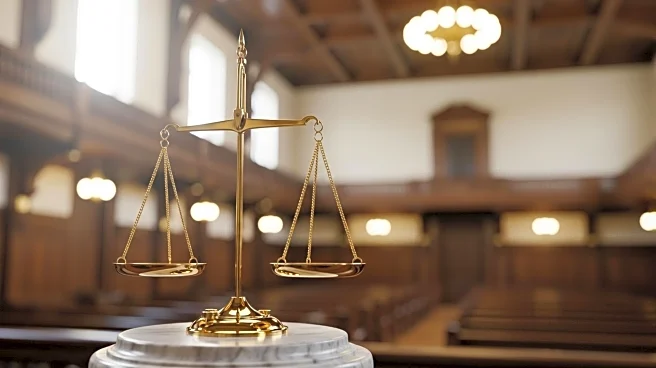What is the story about?
What's Happening?
The Supreme Court is deliberating on a case that could significantly alter the landscape of election-related lawsuits in the United States. The case, Bost v. State of Illinois, involves Rep. Michael Bost (R-Ill.), who is challenging a state law that permits the counting of mail-in ballots up to two weeks after Election Day. Bost argues that this law imposes additional campaign costs on candidates, as they must continue monitoring the vote count post-Election Day. The lower courts previously dismissed Bost's lawsuit, citing a lack of standing since he could not demonstrate specific injury. However, during the Supreme Court's oral arguments, conservative justices appeared open to the idea of granting candidates standing to challenge electoral rules, potentially lowering the bar for proving injury in such cases.
Why It's Important?
This case holds significant implications for the future of election litigation in the U.S. If the Supreme Court decides to lower the threshold for candidates to claim injury, it could lead to an increase in election-related lawsuits. This change could benefit candidates who wish to challenge electoral processes, potentially leading to more disputes over election outcomes. The decision could also impact how mail-in ballots are handled, a contentious issue in recent elections. The ruling may set a precedent that influences how courts handle claims of electoral injury, affecting both current and future candidates. The case is particularly relevant in the context of ongoing debates about election integrity and the legitimacy of mail-in voting.
What's Next?
The Supreme Court's decision could pave the way for more candidates to challenge electoral rules, potentially leading to a surge in litigation around election processes. Political leaders, advocacy groups, and election officials will likely respond to the ruling, either by supporting or opposing the changes it brings. The outcome may also prompt legislative bodies to reconsider or amend existing election laws to address the new legal landscape. Stakeholders in the political and legal communities will be closely monitoring the decision, as it could have far-reaching consequences for future elections and the overall electoral process in the United States.
Beyond the Headlines
The case raises deeper questions about the balance between ensuring fair elections and preventing frivolous litigation. A decision to lower the bar for standing could lead to a flood of lawsuits, potentially overwhelming the judicial system and creating uncertainty around election results. It also touches on the ethical considerations of how electoral rules are challenged and the potential for such challenges to be used as political tools. The ruling could influence public trust in the electoral process, particularly if it is perceived as favoring one political group over another. The broader cultural and legal implications of this case will likely be debated long after the Supreme Court's decision.















